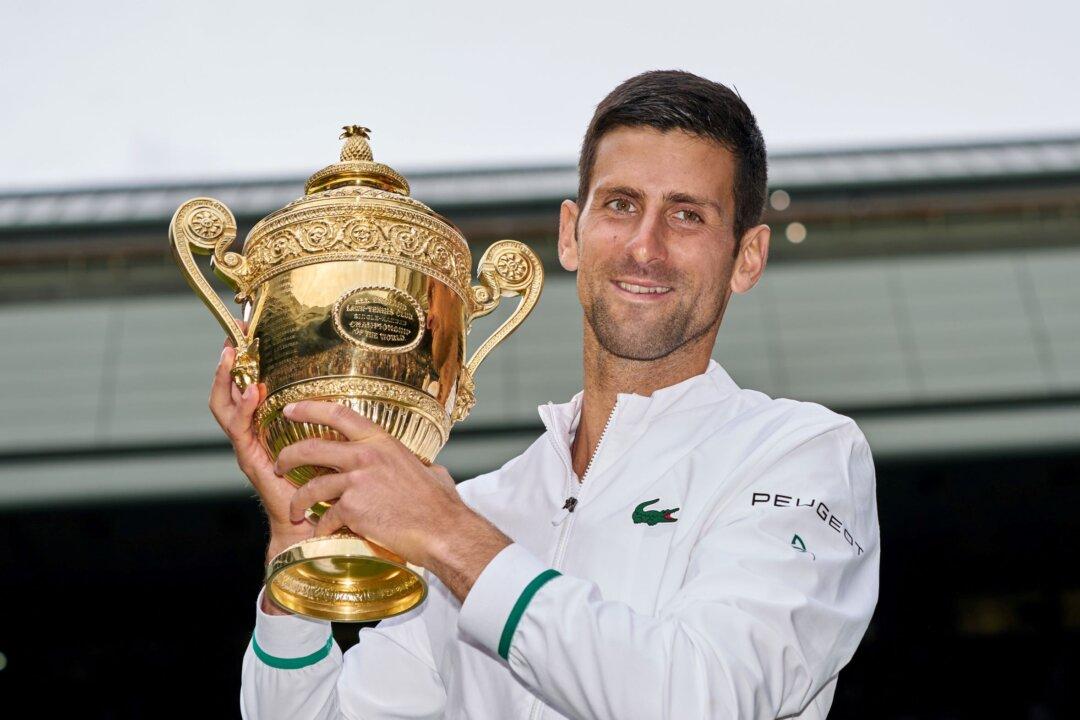UK Housing Secretary Michael Gove has declined to comment on whether or not Novak Djokovic will be able to take part in Wimbledon this year if the tennis player remains unvaccinated against COVID-19
Speaking to Sky News on Monday, Gove said that the UK must “respect the integrity” of Australia’s “complex process” which saw Djokovic’s visa cancelled upon entry at Melbourne airport, just days before the Australian Open on Jan. 17.




